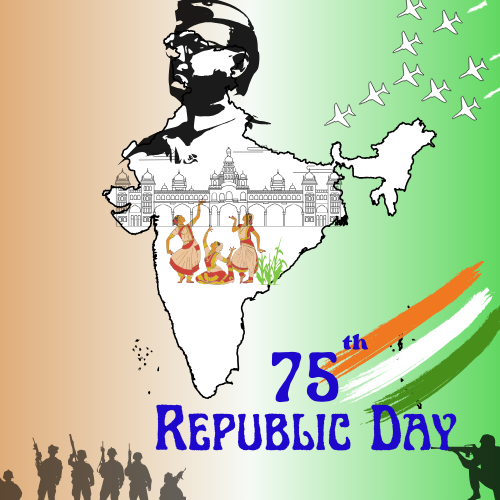
Republic Day in India: Its Significance
India’s Republic Day, celebrated on January 26, holds a special place in the country’s history. It marks the day in 1950 when India adopted its constitution, becoming a sovereign democratic republic. This celebration signifies the country’s transformation from a British dominion to an independent republic. The day is observed with grand parades, patriotic fervor, and cultural events across the nation, highlighting India’s journey towards democracy and its commitment to constitutional values.
Historical Context: The Road to Republic
India gained independence from British rule on August 15, 1947. However, true sovereignty requires a robust framework for governance. To address this, a Constituent Assembly was formed to draft a new Constitution. Dr. B.R. Ambedkar, as Chairman of the Drafting Committee, led this effort. The Assembly adopted the Constitution on November 26, 1949, and it came into effect on January 26, 1950.
The choice of January 26 was intentional. It commemorates the declaration of Purna Swaraj (complete independence) by the Indian National Congress in 1930. Thus, this day represents not just the legal empowerment of India but also the culmination of decades of struggle for freedom and self-governance.
Constitutional Significance: The Pillar of Democracy
India’s Constitution is the cornerstone of its democracy. It lays down the fundamental political principles, establishes the structure and procedures of government institutions, and outlines the rights and duties of citizens. The Constitution embodies ideals of justice, liberty, equality, and fraternity, as stated in its Preamble.
Republic Day signifies India’s transition to a republic with a parliamentary system of governance. This system empowers citizens to elect their leaders through universal adult suffrage. The significance of Republic Day lies in reaffirming India’s commitment to democratic ideals and constitutional principles.
Celebrations and Symbolism: Unity in Diversity
Republic Day celebrations express India’s unity in diversity. The centerpiece of the festivities is the grand parade held in New Delhi. This parade showcases India’s cultural richness, military strength, and technological advancements. Participants include contingents from the armed forces, cultural performers from various states, and schoolchildren, demonstrating the country’s diverse heritage and unity.
The parade features various elements:
- Military Parades: Regiments of the Army, Navy, and Air Force display their discipline and strength.
- Cultural Tableaux: Different states and Union Territories present their unique cultural identities.
- Flypast: The Indian Air Force’s aerial display symbolizes the nation’s prowess.
- Honoring Gallantry: Awards like the Ashoka Chakra and Kirti Chakra recognize acts of bravery.
These celebrations extend beyond the parade. Schools, colleges, and communities across the country engage in flag hoisting, patriotic songs, and cultural programs. This nationwide participation fosters a sense of belonging and national pride among citizens.
Republic Day as a Reflection of India’s Aspirations
Republic Day is more than a historical commemoration. It is a day to reflect on India’s progress and future aspirations. It reminds citizens of the values enshrined in the Constitution and their collective responsibility to uphold them. The celebration highlights India’s achievements in various fields, including science, technology, and social development, while also addressing ongoing challenges like poverty, inequality, and social justice.
Moreover, Republic Day encourages citizens to reflect on their duties towards the nation. The Constitution grants rights but also imposes duties, such as respecting national symbols, protecting public property, and promoting harmony and common brotherhood.
Conclusion: Republic Day’s Enduring Legacy
Republic Day stands as a testament to India’s commitment to democratic governance and constitutional values. It celebrates the country’s rich diversity, historical journey to sovereignty, and collective aspirations for the future. As India evolves, Republic Day remains a cornerstone of its national identity, fostering unity, pride, and a shared vision of a just and inclusive society.
The legacy of Republic Day reminds every Indian that the Constitution is a living document, evolving with the nation. It calls on citizens to contribute to the ongoing journey of building a vibrant, democratic, and progressive republic. Through festivities and reflections, Republic Day reinforces the spirit of democracy and the collective endeavor to achieve a just, equal, and prosperous India.
4o
